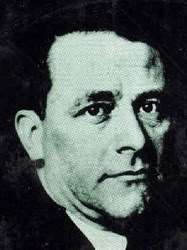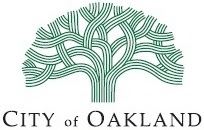Up, Down, Appendices, Postscript.
 Unfinished business: I expected better videos than either the MSN ones (or my rude copies: 1 & 2) of Stephen Harper's speech in Davos to turn up;
Unfinished business: I expected better videos than either the MSN ones (or my rude copies: 1 & 2) of Stephen Harper's speech in Davos to turn up; and indeed there is one: you can watch the original at the World Economic Forum site, here. There is also an inferior one on YouTube (with the audio out of sync).
and indeed there is one: you can watch the original at the World Economic Forum site, here. There is also an inferior one on YouTube (with the audio out of sync).Times're gonna stay tough ... yup; we gotta do what we gotta do to ensure growth. ... And by the way, we can't afford for you to retire just yet ... and uh ... we gotta build more prisons, right away quick.
In 2007, in the Fourth Assessment Report on Climate Change (AR4), the IPCC said: "Most of the observed increase in global average temperatures since the mid-20th century is very likely due to the observed increase in anthropogenic greenhouse gas concentrations." Nevermind the five-syllable words, let's see if we can get the simple ones sorted out: 'most' is an unambiguous adjective meaning more than half; and, 'very likely' is IPCC-speak for 90 to 99% confidence - i.e. for every 10 such statements expect 9 or more of them to pan out.
So, putting it in cro-magnon terms: How would you bet faced with 1 in 9 odds of winning? ('Winning' in this case being a sort of twisted & relative term.)


Now he's just another Twitter user.
Any mention of these idiot softwares: Facebook, Twitter, Google, Windows ... leads me to reflect on how things have devolved since the 1960's & 70's in the realm of computer technology. Oh sure, the hardware has 'improved', Moore's Law and all that (though the improvement may impress poor Congolese women and Chinese Foxconn workers less than some others); but the evolution has been towards stupidity & greed & contempt on all sides. What we imagined back then: Fourth Generation Languages; Structured English Query Language; Natural Language Interface; acronyms with meat on their bones - these were going to be tools for general emancipation, and instead ... but ... nevermind.
Comics for the 10's: [From André Dahmer, Malvados.]

 1964: The dolphin is a Cetacean.
1964: The dolphin is a Cetacean.2011: I think dolphins are fish. / It's a whale. / Hahaha, who cares?

 Infinitely Demanding: Ethics of Commitment, Politics of Resistance by Simon Critchley, 2007: at the Toronto Public Library; no cheap copies at Abe's; new hardcovers from about $30 - Ai ai AI!
Infinitely Demanding: Ethics of Commitment, Politics of Resistance by Simon Critchley, 2007: at the Toronto Public Library; no cheap copies at Abe's; new hardcovers from about $30 - Ai ai AI!Crossing the pons nihilum, or the Rubicon ... or something.
[I am now about half-way through (or across - in my dreams at least) - having scuttled along to the end to see how it turns out - so the next post will likely be more of the same.]
 Most photographs of Simon Critchley show him quite serious, even pugnacious; but really he is a joker - able to traverse complex philosophical slalom courses with alacrity and all the time letting go a string of cartoon baloons behind himself with "LOOK AT ME!" in bold caps - a veritable Calvin & Hobbes.
Most photographs of Simon Critchley show him quite serious, even pugnacious; but really he is a joker - able to traverse complex philosophical slalom courses with alacrity and all the time letting go a string of cartoon baloons behind himself with "LOOK AT ME!" in bold caps - a veritable Calvin & Hobbes.That said, two chapters of Infinitely Demanding, the first and the very end bit of the last (though I would call it 'penultimate', next to last, because there is an appendix which seems integral) come across so clear to me, so pellucid, that I will reproduce them in the hope that someone somewhere will say somthing about them to me (even just, "Take that shit down you asshole! It's copyright!" would be ok).
Here they are:
Introduction - The possibility of commitment, and,
Chapter 4 Anarchic metapolitics, Section k Conclusion.

 If those two excerpts are the bread - the filling of the sandwich ain't bad neither. If I do let my eyes glaze over some of the prose, much of it gets full attention and makes me wish I could talk like that.
If those two excerpts are the bread - the filling of the sandwich ain't bad neither. If I do let my eyes glaze over some of the prose, much of it gets full attention and makes me wish I could talk like that.[Apologies to Shepard Fairey and André the Giant for trying to remove just a little of the irony.]
The other question mark (I wish I had that literary marketeer handy to know how many copies have been sold) is, f'rinstance: how Derrick Jensen is plausibly dissing 'Hope' when material like this is in circulation? But maybe it's not really quite in circulation eh? Maybe the erudition & name-dropping puts people off. Is that it? (Ah, Jensen's Endgame was 2006 - I had remembered it as 2008.)
The jist of it (or the heft, or the bare bones ... or something) is in this diagram from the Introduction:
↓
DISAPPOINTMENT
↙ ↘
RELIGIOUS POLITICAL
↓ ↓
QUESTION OF QUESTION OF
MEANING JUSTICE
↓ ↓
PROBLEM OF NEED FOR
NIHILISM ETHICS
↙ ↘ ↓
PASSIVE ACTIVE ETHICAL EXPERIENCE
NIHILISM NIHILISM ETHICAL SUBJECTIVITY
Figure 1
Chapter 2 Dividualism - how to build an ethical subject, opens with this quote from Fernando Pessoa:
"We never know self-realization.
We are two abysses - a well staring at the sky."
[When I was learning Portuguese I tried to read Fernando Pessoa - just about a complete failure though one or two things got through ... long story ...]
In this connection, Hans Fink and Alasdair Maclntyre write, rightly in my view:Several high fences vaulted - out of the paddock and into the common (as it were); and with a gentleness, a civility, which is (for me) evidenced here in the phrase "the core of Løgstrup's teaching", giving the lie to my nonsense above about Calvin & Hobbes, or at least considerably qualifying it.Løgstrup did indeed take the ethical demand to be that which was commanded by Jesus when he repeated the injunction of Leviticus to love our neighbour as ourselves. But for Løgstrup ... the ethical demand is not laid upon Christians rather than non-Christians. There is not Christian morality and secular morality. There is only human morality.21The core of Løgstrup's teaching is that human morality requires responsivity to the ethical demand, an approval of the demand that is experienced in relation to another living person, the neighbour, whether friend or foe. What this entails, interestingly I think, is that the ethical demand is phenomenologically the same for the secularist or the theist. I experience a radical demand and try to shape my subjectivity in relation to it. Whether the demand ultimately emanates from God, the abyssal void at the heart of being, the fairies at the bottom of my garden, or some other occult source is something we cannot know, for good Kantian reasons. The ultimate metaphysical source of ethical obligation, should there be such a thing, is simply not cognizable. In my more extreme view, the question of the metaphysical ground or basis of ethical obligation should simply be disregarded as a philosophical wheel spinning with neither friction nor forward motion. Instead, the focus should be on the radicality of the human demand that faces us, a demand that requires phenomenology and not metaphysics. To put it more paradoxically, knowing that there is no God, we have to subject ourselves to the demand to be God-like, knowing that we are sure to fail because of our finite condition - a godless subjectivation. For Løgstrup, as we have seen, to fail to meet the ethical demand of the neighbour is to fail our existence irreparably. We can now see that such failure is inevitable, for we can never hope to fulfil the radicality of the ethical demand. But far from failure being a reason for dejection or disaffection, I think it should be viewed as the condition for courage in ethical action. The motto for ethical subjectivity is given by Beckett in Worstward Ho, 'Try again. Fail again. Fail better.'22

 A-and for a fool like me the term 'crypto-Schmittianism' (the subject of the Appendix) has a certain ring to it (echoes of Candice Bergen in Boston Legal - a different spelling of Schmidt an' all).
A-and for a fool like me the term 'crypto-Schmittianism' (the subject of the Appendix) has a certain ring to it (echoes of Candice Bergen in Boston Legal - a different spelling of Schmidt an' all).What with Stephen Harper's recent performance in Davos and his activities since and so on ...
 A nugget: "I will show how humour can be conceived as a practice of minimal sublimation that both maintains and alleviates the division of the ethical subject."
A nugget: "I will show how humour can be conceived as a practice of minimal sublimation that both maintains and alleviates the division of the ethical subject."Blogging platforms:
Blackbirds in trees ...
 Pixação or pichação is grafitti; pixadores are people who grafitti (according to the OED it is a verb ... they are simply wrong once in a while).
Pixação or pichação is grafitti; pixadores are people who grafitti (according to the OED it is a verb ... they are simply wrong once in a while).Is Pixação active or passive nihilism then? Or neither? Check out this longish trailer for the documentary film Pixo, by João Weiner & Roberto Oliveira (10 minutes, Portuguese with French subtitles).
When I saw the grafitti in Rio - on the upper stories of tall buildings - well (I thought) obviously these guys are fit at least.






 Occupy Oakland still has legs,
Occupy Oakland still has legs,Occupy Toronto not so much.
Occupy Oakland's letter to the powers-that-be is below. Some ambiguity as usual about who is 'in charge' Occupy Oakland or Occupy Oakland Move-In Day or (more likely) 'all of the above'.
When I checked Occupy Toronto's site last Sunday morning early there was nary a word about Oakland (?) - though this was put (sort of) right by noon - and a lot of it goes on with Facebook & Twitter where I do not venture.
Giles Fraser (the ex-Canon Chancellor of St Paul's Cathedral who quit in protest last October) had this to say. He seems to understand what's what - but like Chris Hedges (whom he mentions) he also seems to think Christianity is somehow part of the solution. Doh!?
Columbia Grammar and Preparatory: $38,340 for 12th grade;
Horace Mann: $37,275 for the upper school;
Harvard: $36,305;
Riverdale Country School: $40,450 for 12th grade;
Brearley’s: $38,200;
Dalton School: $36,970;
Avenues: $39,750 starting in nursery school;
Spence: $37,500;
Saint Ann’s (a relative bargain): $25,000 in nursery school; plus,
Manhattan Private School Advisors (consultants at additional cost): $21,500.
What keeps the prices rising, they say, is the seemingly endless stream of people more than willing to pay them.
it seems to me that one of the most pressing issues is despair - either trying to avoid it (which is more difficult the more you know and understand of 'the science'), or trying to deal with it and find a way forward despite itAnd I said to the book-club lady:
a book has come my way, 'Infinitely Demanding: Ethics of Commitment, Politics of Resistance' by Simon Critchley, 2007 - there are a few copies at TPL - which is shedding some light on what I call despair and what he calls nihilism (more or less)
how about a meetup, led by some competent philosopher or activist (maybe wazizname ... Mike Balkwill?) who has read the book, to discuss ways towards some kind of eco-sanity, towards a post-carbon economy & society and so forth - when faced by the likes of Stephen Harper & his venal cabal?
I have read the likes of Derrick Jensen & Clive Hamilton & so on ... and what Critchley is putting out seems to me to potentially trump all that
please let me know what you think
I believe it was you who was organizing a book club (?) But it was aA-and I said to a guy who reportedly knows all about despair in the upper ranks of ENGOs (who had not followed through on a vague previous commitment):
while ago and I could be mistaken.
If so, please let me know what is happening with it.
maybe what is required is a more specific proposal :-)How far out on this limb do I have to climb I wonder? All the way I guess. Whatever ...]
how about a seminar or some kind of event around the notions of Simon Critchley in 'Infinitely Demanding: Ethics of Commitment, Politics of Resistance'?
or, in the event that you have not read this book, let me buy you a copy on the understanding that we will definitely meet to discuss it when you have read it? (for this I will need a mailing address)
    |
[Don't believe a word this obviously unbalanced and unrepentant whoremonger has to say. (AND an unregenerate reprobate! AND prolly one'a them damned anarchist athiests too!) There is a bit from Ken Kesey's Sometimes a Great Notion ... below.]
And anyway, the government hates cash - no more $1,000 bills to flaunt. I paid off a divorce lawyer one time with big bills (two hands full of 'em) - and the smile she came out with made her look like she was coming in her knickers.
The up-side of this whole situation is that there is nowhere to go. I often dream these days of a little garden somewhere away from it all and regret not having been clever enough to put some cash away to buy one when I had it - a place to dig & delve, dibble & hoe - but there is no longer any 'away' any where. Doesn't matter where you are or where you go ("You can't get there from here," as the Eskimo said to the Scotsman.)
 But this is an up-side because ... well, maybe it plays to the strong suit in the human deck for once. Might be too late by the time it kicks in en masse; but then again, might not be. Have to wait & see.
But this is an up-side because ... well, maybe it plays to the strong suit in the human deck for once. Might be too late by the time it kicks in en masse; but then again, might not be. Have to wait & see.The Fat Lady is already singing - you don't have to listen real hard to hear her - but she will really tune up by 2015. I am on the very edge of my front-row VIP seat.
 (All the seats are in the front row for this show - there's equality for you.)
(All the seats are in the front row for this show - there's equality for you.)Be well.
Postscript:

 Prêmio 'Nobel' da vergonha corporativa mundial: grandes vencedores em 2012 são Vale S.A. (Sociedade Anônima) e TEPCO Tokyo Electric Power Company.
Prêmio 'Nobel' da vergonha corporativa mundial: grandes vencedores em 2012 são Vale S.A. (Sociedade Anônima) e TEPCO Tokyo Electric Power Company.
|
 AkzoNobel pulls out. Lynas goes ahead. Place called Gebeng near Kuantan in Pahang (state) Malaysia (map). In the NYT (more and more of it behind a pay wall) on January 31 & February 1: "20,000 tons a year of low-level radioactive waste" (should have guessed). What does 'low level' mean I wonder?
AkzoNobel pulls out. Lynas goes ahead. Place called Gebeng near Kuantan in Pahang (state) Malaysia (map). In the NYT (more and more of it behind a pay wall) on January 31 & February 1: "20,000 tons a year of low-level radioactive waste" (should have guessed). What does 'low level' mean I wonder? A good idea from SunCentral Inc. (Couldn't you do a similar thing with refrigerators?) Doesn't matter; Joe Oliver has abruptly cancelled the ecoEnergy Retrofit program; and the R&D Tax Credit scheme is being restructured to better serve the interests of large established companies. Mixed emotions ... I didn't call it a 'scheme' for nothing ... whatever.
A good idea from SunCentral Inc. (Couldn't you do a similar thing with refrigerators?) Doesn't matter; Joe Oliver has abruptly cancelled the ecoEnergy Retrofit program; and the R&D Tax Credit scheme is being restructured to better serve the interests of large established companies. Mixed emotions ... I didn't call it a 'scheme' for nothing ... whatever.A-and, saving the best for last: in November 2011 the k-k-Canadian GDP shrank by 0.1 per cent. Given what I saw of Christmas shopping in Toronto The Good the December numbers (when they are finished cooking them) might be even better, who knows? Maybe more? Maybe 0.2 percent shrinkage?
There IS hope! (infinitesimally faint, but yes, glimmering)
Appendices:
1. Dear Mayor Jean Quan, Oakland Police Department, and Oakland City Council, Occupy Oakland, sometime before January 28 2012.
1. Sometimes a Great Notion (excerpts), Ken Kesey, 1964.
Dear Mayor Jean Quan, Oakland Police Department, and Oakland City Council, Occupy Oakland, sometime before January 28 2012.
As you probably know, Occupy Oakland is planning the occupation of a building on January 28th that will serve as a social center, convergence center, headquarters, free kitchen, and place of housing for Occupy Oakland. Like so many other people, Occupy Oakland is homeless while buildings remain vacant and unused. For Occupy this is in large part because of yourselves, having evicted us twice from public space that was rightfully ours. For others it is because of the housing bubble, predatory lending, the perpetual crises of capitalism, and far reaching histories of imperialism and systemic violence.
Our families, friends, and communities built the buildings that sit empty in post-industrial Oakland. Now these buildings outnumber the homeless and represent the theft of our collective labor as the class of the unpropertied and dispossessed. Allowing this building to remain vacant while so many are in need is injurious theft, injustice; its extralegal occupancy is not.
When Occupy Oakland was first evicted on October 25, we organized a General Strike on November 2nd with only a week to plan. November 2nd proved our strength and relevancy. Conservative estimates said twenty thousand took the streets, but for those of us who marched on the ports it could have been a hundred thousand. November 2nd was an inspiration for the Occupy Movement and public condemnation of your violent repression.
Eventually we reoccupied Oscar Grant Plaza only to suffer a second violent eviction on November 14th. At this time there was a national crackdown on the Occupy movement as evictions were happening in Boston, New York City, Atlanta, Portland OR and elsewhere. It was revealed that you, Jean Quan, had been coordinating with federal agents how to best repress dissent. In response Occupy Oakland was the impetus for a West Coast Port Shut Down, in solidarity with Longview ILWU workers whose union is under attack by EGT. The action escalated to a national and then international action as more occupations signed on. In Oakland alone the shutdown cost some $8.7 million dollars in lost revenue and proved that when civic and economic institutions do not serve us, we can shut them down.
Since the beginning of the Occupy Movement when you have exacted violent repression on us we have proven that we are more powerful and diffuse than you. If you try to evict us again we will make your lives more miserable than you make ours.
This may be in one or more of the following forms:
-Blockading the airport indefinitely
-Occupying City Hall indefinitely
-Shutting down the Oakland ports
-Calling on anonymous for solidarity
It will be in our mutual interest if you respect our occupation by recognizing our residency and imminent domain. We are sure that we all look forward to the needs of Oakland’s people finally being met.
Don’t fuck with the Oakland Commune.
Signed, Occupy Oakland Move-In Assembly.
Sometimes a Great Notion (excerpts), Ken Kesey, 1964.
1. Leland gets on the bus:
... The postcard rang in my ears. My stomach rolled, voices tolled in my head—that interior monitor of mine bellowing for me to WATCH OUT! HANG ON! THIS IS IT! YOU'RE FINALLY COMPLETELY FLIPPING! I clutched the armrests of the bus seat desperately, terrified.
Looking back (I mean now, here, from this particular juncture in time, able to be objective and courageous thanks to the miracle of modern narrative technique), I see the terror clearly, but I find it a little difficult to believe that I was sincerely able to blame much of this burgeoning terror on the rather hackneyed fear of going mad. While it was quite fashionable at the time for one to claim to be constantly threatened by the fear of finally flipping out, I don't think I had been able to honestly convince myself of my right to the claim for a good while. In fact, ...
2. Hank brings Leland across the river in the boat:
We get to the dock and I tie up the boat and throw a little tarp over the motor after I shut it off. I think for just a second about asking Lee to shut off the motor while I tie up—figuring he'd grab that live plug like old Henry does at least once a week and shock the shit out of himself—but I decide against that too. I'm deciding against things right and left, it looks like. Because for one thing I'm thinking more and more that there is some kind of truly big strain on the kid. He's quit talking and is looking around at the place. His eyes are kind of glassy. And there's a silence stretched between us like barbed wire. But for all of that I feel pretty good. He did come back; by god he did come back. I cough and spit in the water and look out to where the sun's tumbling toward the bay like a big dusty red rose. In the fall when they burn the stubble off the fields the sun gets this dusty hazy color, and the mare's-tail clouds whipping along near Wakonda Head look like goldenrod bent over by the wind. It's always real pretty. You can almost hear it ring in the sky.
"Look yonder," I say, pointing at the sunset.
He turns slow, batting his eyes like he's in a daze. "What?" he says.
"There. Look there. There where the sun is."
"There what?" WATCH OUT. "Where?"
I start to tell him but I see he just can't see it, it's clear he can't. No more than a color-blind man can see color. Something is really haywire with him. So I say, "Nothing, nothing. A salmon jumped is all. You missed it."
"Oh yeah?" Lee keeps his gaze turned from his brother, but is alert to his every move: WATCH OUT NOW . . .
I keep telling myself to go shake his hand and tell him how glad I am that he's come, but I know it's something I can't pull off. I couldn't do that no more than I could ...
Down.



























 The story of Jean Quan, mayor of Oakland, seems to belong here: see
The story of Jean Quan, mayor of Oakland, seems to belong here: see 





